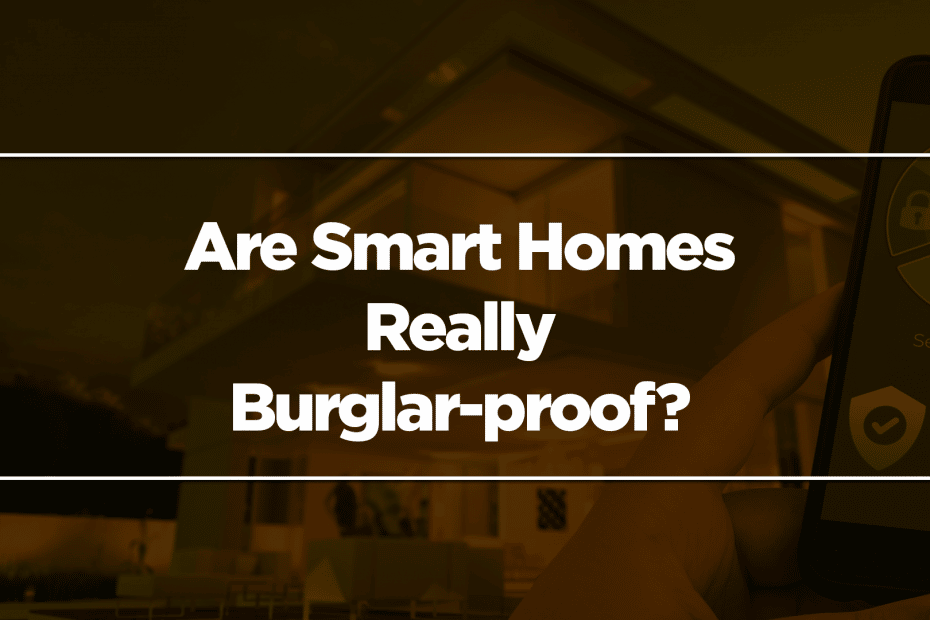Smart homes make life a lot easier. You are already stressed from work or school. So you want to relax as much as possible when you are home. Smart devices allow you to do that. They set the temperature to the right temperature, cook food perfectly, and significantly reduce your workload.
However, CBS News reports that smart devices can open you to security threats. CBS2’s Alice Gainer surveyed New Yorkers if they knew smart devices could aid burglars.
A person said, “Not on my radar.” But another said they have thought about that, and that’s why they are skeptical about buying smart devices. One respondent told the story of how her cousin’s Ring camera got hacked, which allowed the hackers to talk to their children.

Neal Bridges, a chief content officer with INE.com, sat with Gainer for an interview. He said that smart home devices could have your personal information, including your address and Wi-Fi password. Furthermore, they may hold information about how to lock and unlock your doors or valuables.
Bridges talked about brute force attacks. Using a tool, he gained someone’s username and password in seconds. Additionally, he got access to names and email addresses. And Bridges also got into their cloud storage.
Everything in your smart home can lead to break-ins, reports CBS News. LED strips and your smart light bulbs can get you exposed. And burglars can also know you are not at home
because your smart thermostat is set for vacation.
Are CBS News’ Claims True?
Digital Trends has responded to the article CBS News New York has posted. Patrik Hearn, a smart home writer, said one line particularly stood out for him. That’s the part where the article claimed that “Even your light bulbs could leave you vulnerable.”
Is that statement true? Technically speaking, yes. Hearn confirms that a hacker could gain access to your home using your smart home devices and let themselves in. But that would only happen if you have a smart lock.
And while that is possible, “it is remotely likely” to happen.
Smart Home Vulnerabilities
Admittedly, smart homes are not perfect; nothing is! In fact, the writers at Digital Trends have written about security flaws and how to avoid them quite often. For example, they wrote about the undisclosed vulnerability in the Wyze Cam v1.
But as companies become aware of these vulnerabilities, they take steps to correct them. Ring, a provider of home security systems, is a great demonstrator of that. In its early days, the company was the focus of quite a few hacks. But now, Ring is one of the most-lauded brands for home security.
Of course, not because these companies are striving to fix these flaws mean that you should not be concerned. There are still privacy concerns that you must consider. Someone could be spying on you using your own security cameras. And yes, there are cases when hackers used light bulbs to access the broader network.
The CBS article covered how hackers can leverage your smart home devices to do what they want. They mentioned how hackers could use the settings on your devices to learn if you are away from home. Indeed, hackers can get that information. But they can also obtain it by hacking your email or reading a trip itinerary. That is a far easier method.

The gist is the CBS article has truth in it, but it overstates the risk. It implies that smart homes have a massive security flaw – a misleading statement.
About Brute Force Attacks
The CBS article focused on brute force attacks. It uses an algorithm to test thousands of username and password combinations. Indeed, it can succeed at doing that. The problem is CBS said it can do that “in a matter of seconds.”
Brute force attacks are not that fast. And with proper password practices, it can take a very long time. That’s why you should use passwords that are not easy to guess. It should also contain a combination of uppercase and lowercase letters, numbers, and symbols. For every character you add to the password, the longer the brute force attack will take.
Two-factor authentication also thwarts brute force attacks. Suppose someone gains access to your username and password; they can’t log in unless they provide the 2FA code. The best practice is to have the code sent to your phone rather than your email.
Burglars Don’t Plan Heists.
Most burglaries and thefts are crimes of opportunity. Someone sees through your window that you have valuables in your home, and there’s no car in the driveway. They grab the chance by forcing an entry.
That’s how it usually goes. Burglars would not take time to hack your smart home and learn your schedule to gain access. That will only happen if they know you are a famous millionaire. Why would they do that if breaking a window and entering is easier? And how many burglars know how to hack? For sure, those that don’t outnumber the ones that do.
FBI crime data reveals that 55.7% of all burglaries involved forcible entry in 2019. Another 37.8 percent involved unlawful entry – like entering through an unlocked door. Guess what could have prevented these from happening – a video doorbell! The majority of these products have an auto locking feature, so it’s okay if you forget; the door locks itself.
Leaving deliveries piled up at your front door will put your home at risk more than smart home devices would. So contrary to what the CBS article said, a smart home is highly unlikely to aid in a burglary.
Industry Standards for Smart Home Security
The CBS story said that there are no industry standards for how smart devices need to be. That is correct, especially in small companies, giants like Amazon and Google do not back or fund. But utilizing advanced encryption protocols and requiring two-factor authentication is becoming increasingly more common. So security in smart homes is improving.

To recap, hackers may hack your smart doorbell to enter your home. But they are more likely to break the door or windows.
